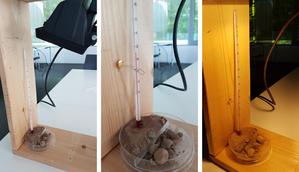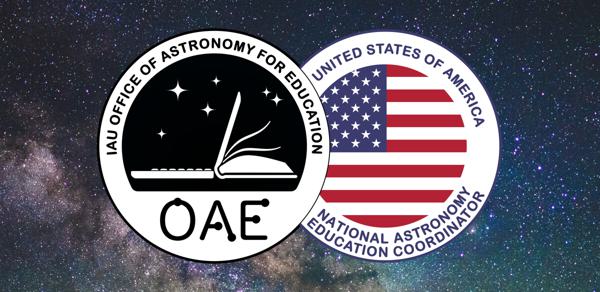Glossary term: Temperature
Description: In a physical system that has "settled down" over time, reaching what is called thermal equilibrium, each way the system can change (each "degree of freedom") has, on average, the same energy. The system's temperature is a measure of how large that average energy is.
Temperature is important in all disciplines of natural science as well as most aspects of everyday life. The most common temperature scales are the Celsius scale (former name centigrade, denoted as °C), the Fahrenheit scale (denoted as °F), and the kelvin scale (denoted as K). The latter is predominantly used for scientific purposes. The lowest theoretical temperature is absolute zero (0 K = -273.15 °C), at which no more thermal energy can be extracted from a body. In the nucleus of stars, the temperature exceeds 10 million K, while in cold molecular clouds of interstellar gas it can be as cold as 10 K.
Related Terms:
See this term in other languages
Term and definition status: This term and its definition have been approved by a research astronomer and a teacher
The OAE Multilingual Glossary is a project of the IAU Office of Astronomy for Education (OAE) in collaboration with the IAU Office of Astronomy Outreach (OAO). The terms and definitions were chosen, written and reviewed by a collective effort from the OAE, the OAE Centers and Nodes, the OAE National Astronomy Education Coordinators (NAECs) and other volunteers. You can find a full list of credits here. All glossary terms and their definitions are released under a Creative Commons CC BY-4.0 license and should be credited to "IAU OAE".
Related Activities
Oceans As A Heat Reservoir
astroEDU educational activity (links to astroEDU website) Description: Why do oceans play an important role in mitigating global warming?License: CC-BY-4.0 Creative Commons Attribution 4.0 International (CC BY 4.0) icons
Tags: Life , Climate change , Oceans , heat Age Ranges: 12-14 , 14-16 , 16-19 Education Level: Middle School Areas of Learning: Modelling , Social Research , Traditional Science Experiment Costs: Medium Cost Duration: 1 hour 30 mins Group Size: Group Skills: Analysing and interpreting data , Constructing explanations , Developing and using models , Engaging in argument from evidence , Planning and carrying out investigations








